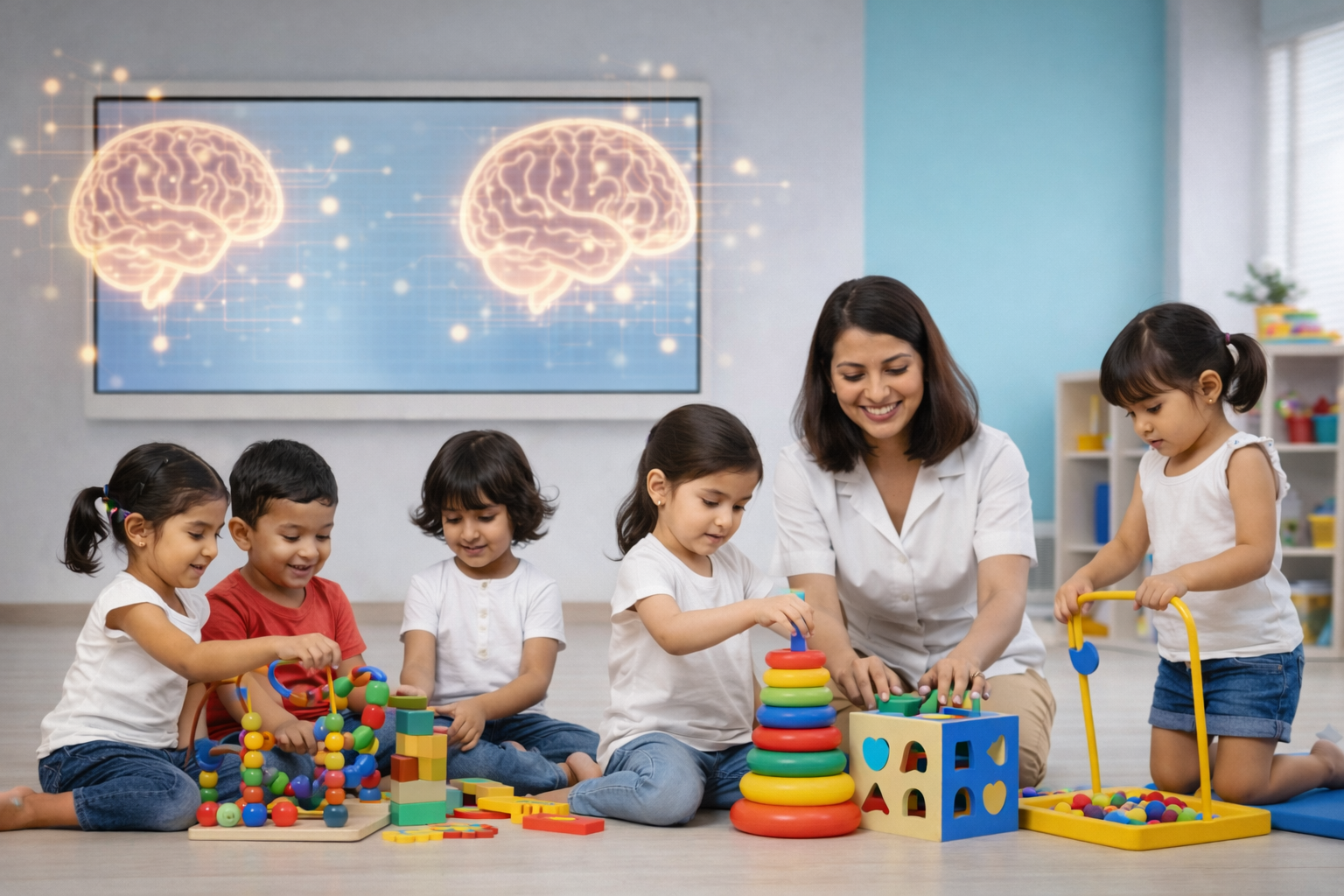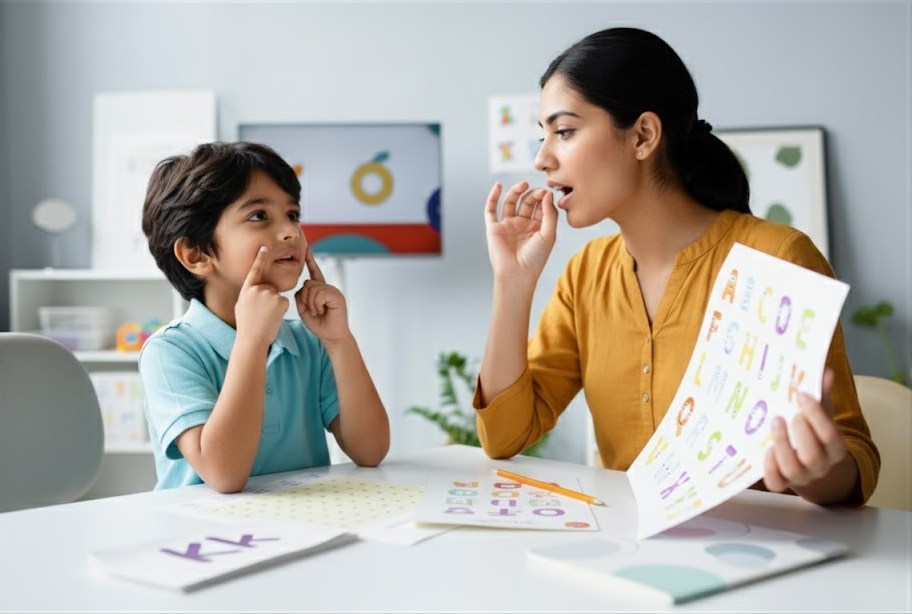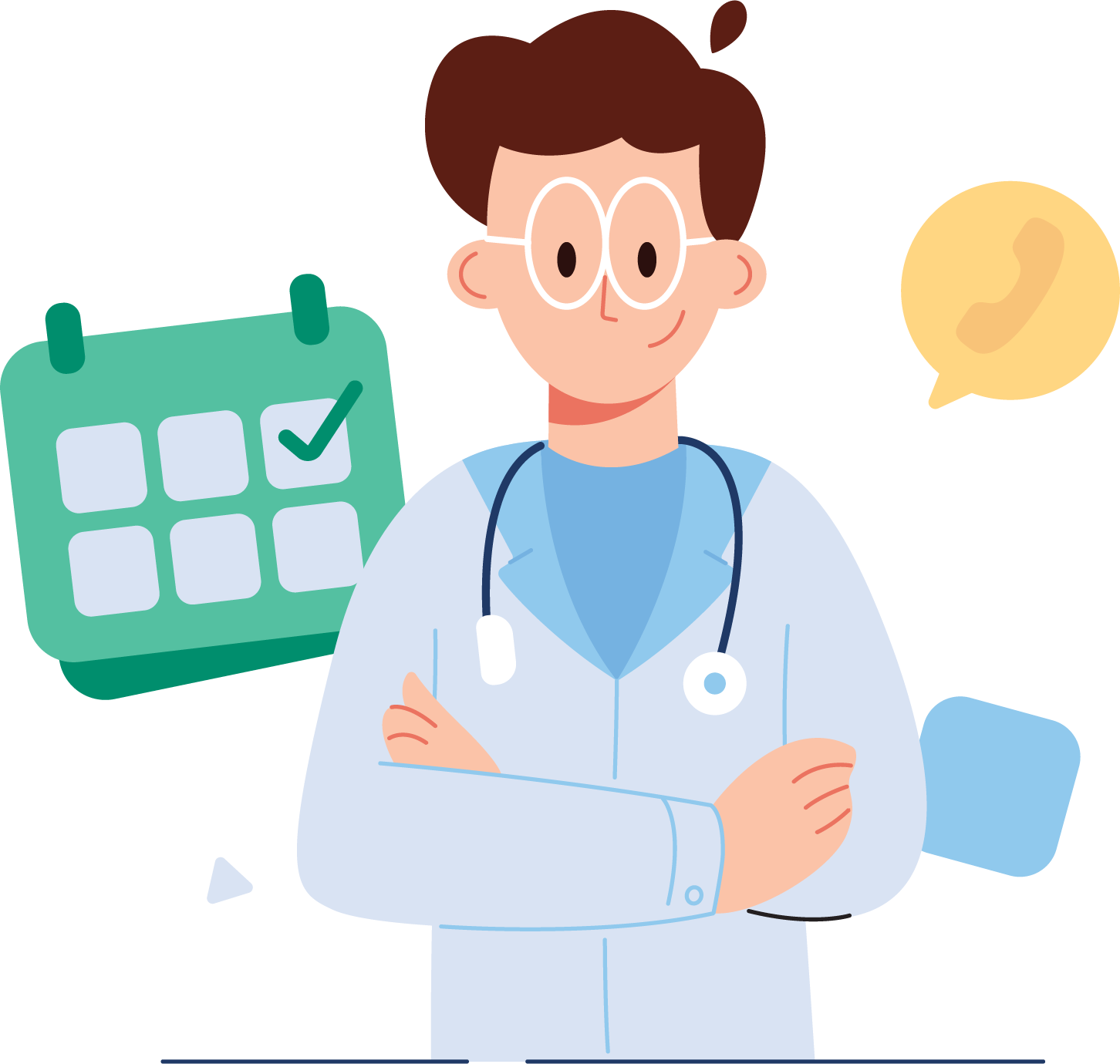All children are active, curious, and sometimes a bit impulsive. But when these behaviors are constant and start interfering with daily routines, social life, or learning, they might indicate ADHD (Attention-Deficit/Hyperactivity Disorder). The early years are the best time to notice these signs and take positive steps forward.
At Samvedan, child development expert Dr. Purva Shah works closely with families to understand and manage ADHD in children using customized care and proven methods. With timely ADHD treatment, children can build the tools they need for a confident, successful future.
What Exactly is ADHD?
ADHD is a brain-based condition that affects attention span, self-control, and activity levels. It’s one of the most common developmental concerns in children but is often misunderstood. Many parents believe their child is just “overactive” or “difficult,” when in fact, their behavior may be driven by how their brain processes information.
ADHD can appear in different forms some children are mainly inattentive, some are hyperactive and impulsive, and others show a mix of both. The good news? With early support and tailored ADHD therapy for child, things can improve significantly.
Why Early Detection Matters
Identifying ADHD in its early stages opens the door to meaningful change. Children benefit the most when intervention begins before habits, frustration, and negative feedback from peers or adults start affecting their confidence.
According to Dr. Purva Shah, recognizing the signs early can prevent long-term academic struggles, behavioral problems, and emotional difficulties. At Samvedan, every care plan begins with understanding the child’s environment, personality, and needs making ADHD treatment a collaborative and compassionate process.
Key Signs of ADHD in Young Children
1. Frequent Inattention
While it’s normal for kids to lose focus occasionally, children with ADHD consistently struggle with:
-
Finishing tasks (even simple ones like getting dressed or packing a bag)
-
Staying attentive during stories or conversations
-
Forgetting homework or chores
-
Misplacing school items, toys, or daily necessities
They may seem like they’re not listening, even when spoken to directly. This isn’t willful behavior it’s how their brain processes external stimuli. If these challenges occur frequently, it may be worth exploring professional ADHD treatment.
2. High Energy That Disrupts
Most kids are energetic. But when your child:
-
Constantly moves, even in settings where calm is expected
-
Climbs furniture, runs indoors, or seems “restless” all the time
-
Talks nonstop and finds it hard to wait for their turn
these could be signs of hyperactive-type ADHD.
At Samvedan, Dr. Shah often meets parents feeling overwhelmed by their child’s energy. She emphasizes that understanding the behavior is the first step to helping children channel their energy more constructively through structured ADHD therapy for child.
3. Impulsivity and Difficulty with Self-Control
Impulsive children often:
-
Interrupt conversations or games
-
Act without thinking grabbing things, dashing into roads, or saying inappropriate things
-
Struggle to wait in lines or during group activities
-
React emotionally, sometimes with outbursts or tantrums
Impulsivity can impact social development and create challenges in school settings. This is why tailored ADHD treatment is so important it teaches not just behavior control but emotional awareness and communication skills too.
A Parent’s Story: Meera and Her Son
Meera, a parent at Samvedan, brought her 5-year-old son for an assessment after noticing his struggle to sit through class and frequent scolding from teachers. He was bright and creative but couldn’t stay focused or complete simple tasks. Under Dr. Purva Shah’s care, he began ADHD therapy for child that involved structured routines, reward systems, and parent coaching. Within months, Meera saw improvement not just in behavior but in his confidence and happiness too.
When Should You Take Action?
You know your child better than anyone. If these signs:
-
Continue for six months or more
-
Occur in more than one setting (e.g., school and home)
-
Affect your child’s learning, friendships, or family life
At Samvedan, families are never rushed into decisions. Dr. Purva Shah offers in-depth assessments and listens closely to parents before crafting a support plan. ADHD can look different in every child, which is why individualized ADHD treatment makes all the difference.
What Does ADHD Therapy for Child Include?
ADHD therapy for child at Samvedan goes beyond symptom control. It focuses on skill-building, emotional support, and empowering both the child and the parent.
Here’s what it may include:
-
Behavioral Therapy: Helps children understand cause-effect, improve focus, and develop patience.
-
Parent Training: Gives caregivers effective tools to handle difficult moments without stress or punishment.
-
Routine Structuring: Builds daily schedules that reduce overwhelm and improve predictability.
-
Support for Schools: Ensures that teachers understand your child’s needs and adapt their approach.
Dr. Purva Shah ensures that every family is equipped with practical strategies they can use at home, making ADHD treatment an everyday part of life, not just a clinic-based approach.
The Long-Term Impact of Early ADHD Treatment
With consistent support, children with ADHD can learn to manage their challenges and thrive in academics, friendships, and emotional growth. Early intervention reduces the risk of anxiety, low self-esteem, and school dropout.
Children who receive early ADHD therapy for child often show remarkable improvements in:
-
Self-discipline
-
Emotional awareness
-
Academic achievement
-
Social skills
At Samvedan, the focus isn’t just on controlling behavior it’s about helping children develop into emotionally strong, self-aware individuals.






